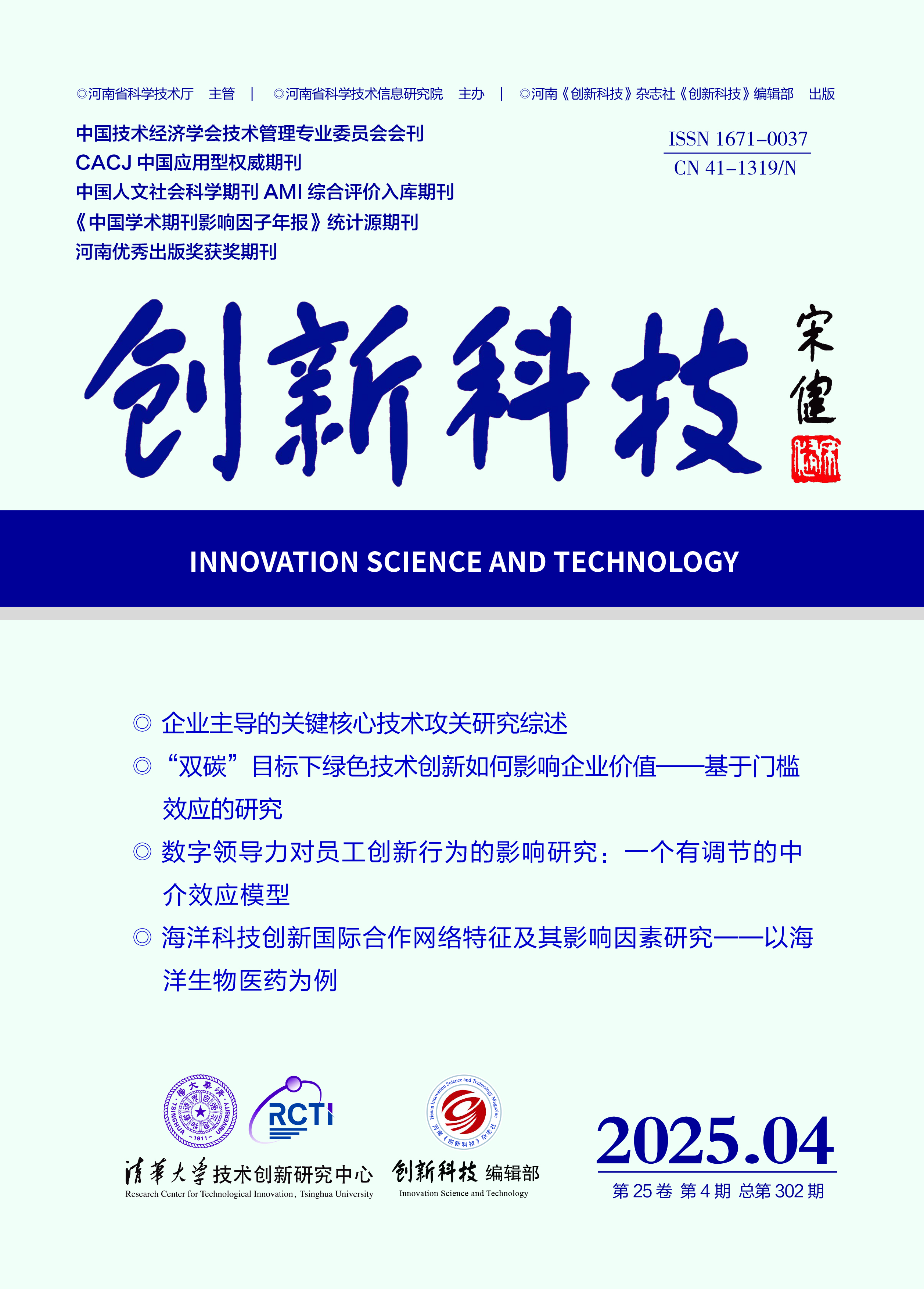INNOVATION SCIENCE AND TECHNOLOGY
Quick Search

All publication are peer-review
Peer review will take the from of double-blind review Judge objectively and impartially
There is no conflict of interest for the reviewer
Review articles shall be kept strictly confidential prior to publication
Enterprise's R&D and Innovation Management
Research on the Impact of CEO Social Capital on Enterprise Digital Innovation
Fu Lihua, Ye Qingqing
(School of Management, Hefei University of Technology, Hefei 230009, China)
Abstract: With the rapid development of information technology, digital innovation has be⁃ come an inevitable choice for enterprises to gain competitive advantages. However, practice shows that enterprises face many challenges in achieving digital innovation, and Chinese enter⁃ prises still lack digital innovation capabilities in some key areas. Therefore, it is crucial to find effective ways to promote digital innovation in enterprises. As the core leader of an enterprise, the CEO's social capital has been proven to provide valuable resources, information, and oppor⁃ tunities for the enterprise, thereby having a significant impact on the enterprise's risk-taking, performance, and investment choices. Many studies have shown that CEO social capital is of great significance to the development of enterprises, but few scholars have explored the impact of CEO social capital on enterprise digital innovation. Using listed enterprises in the core indus⁃ tries of the digital economy from 2015 to 2022 as samples, this study explores the impact of CEO social capital in three different dimensions, namely CEO academic capital, CEO business capi⁃ tal, and CEO political capital, on enterprise digital innovation. The study finds that CEO aca⁃ demic capital and CEO business capital have a positive impact on enterprise digital innovation, while CEO political capital has a negative impact. This conclusion has been verified by robust⁃ ness tests and endogeneity tests, and the research results are robust. Further, the study explores the moderating effect of CEO shareholding and dynamic capability on the relationship between CEO social capital and enterprise digital innovation. The results show that CEO shareholding has a positive moderating effect on the relationship between CEO academic capital and enter⁃ prise digital innovation, as well as between CEO political capital and enterprise digital innova⁃ tion, but no significant moderating effect on the relationship with CEO business capital; dynamic capability has a positive moderating effect on the relationship between CEO business capital and enterprise digital innovation, and between CEO political capital and enterprise digital innova⁃ tion, but no significant moderating effect on the relationship with CEO academic capital. The re⁃ search has both theoretical and practical contributions. In terms of theoretical contributions: firstly, the study incorporates CEO social capital and enterprise digital innovation into a single framework, enriching the research on the antecedents influencing enterprise digital innovation; secondly, the study examines how CEO shareholding and dynamic capability, at both the indi⁃ vidual and organizational levels, moderate the effects of CEO social capital on enterprise digital innovation, furthering the scientific understanding of the circumstances in which CEO social capital may be more conducive to enterprise digital innovation. In terms of practical contribu⁃ tions, the study provides the following management inspirations for enterprises: first, actively de⁃ velop CEO social capital to provide greater resource support for enterprises; second, implement a CEO equity incentive system to strengthen the connection between CEOs and enterprises; third, increase the efforts to cultivate dynamic capabilities to improve enterprises' ability to transform resources.
Key words: CEO social capital; enterprise digital innovation; CEO shareholding; dynamic ca⁃ pability